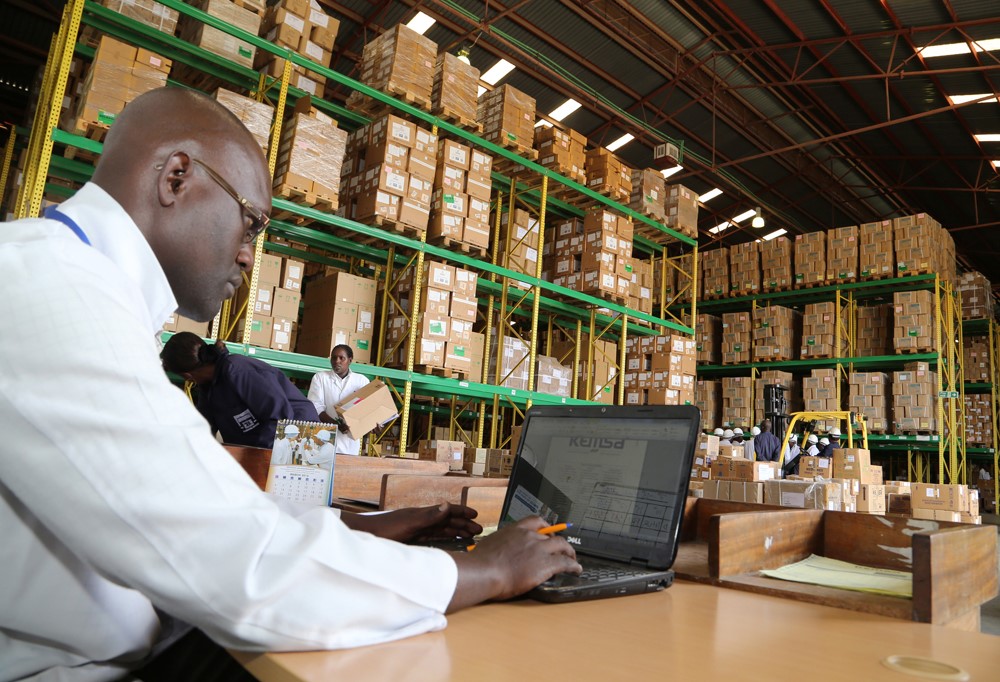Gavi, the Global Fund to Fight AIDS, Tuberculosis and Malaria, and USAID announce innovative collaboration to support health supply chain leaders in low- and middle-income countries
18 March 2021, Geneva: Recognising the critical role that health supply chain leaders and managers play in ensuring the availability of critical vaccines and health commodities, three donor agencies – Gavi, the Vaccine Alliance, the Global Fund to Fight AIDS, Tuberculosis and Malaria (the Global Fund) and the United States Agency for International Development (USAID) have established a new partnership to jointly offer an updated version of the Strategic Training Executive Programme, known as STEP 2.0.
By uniting with one voice through this transformative programme, Gavi, the Global Fund, and USAID will increase supply chain efficiency and consequently improve health outcomes for many in lower- and middle-income countries struggling to access medicines or other health commodities.
Managed by People that Deliver (PtD) – a global coalition hosted by UNICEF Supply Division – STEP 2.0 is a programme that is specifically tailored to the needs of health supply chain leaders and managers. Crucially, it blends elements of self-paced learning, facilitator-led training, on-the-job application of leadership skills and coaching support.
It builds on Gavi's original model, developed in 2015, which enhances the management capacity of immunisation supply chains through a structured training programme. With the support of the UPS Foundation and the IFPW Foundation and its member partner, GlaxoSmithKline (GSK), over 300 participants from 22 countries benefitted from the original STEP programme.
What makes STEP unique is that it pairs public health supply chain leaders with private sector supply experts. And STEP 2.0 goes even further by leveraging the technical strengths of each organisation's supply chain leadership programs, including USAID's Lead Lab Initiative and the Transformational Leadership Program (a change management programme for supply chain executives).
Dr. Seth Berkley, Gavi CEO, explained the important skills gap that STEP 2.0 aims to address: "Leadership skills are critical for supply chain management — yet often the leaders and managers of public health supply chains in low- and middle-income countries are former front-line health workers and have not been supported to develop these and other soft skills. This collaboration with USAID and the Global Fund is an opportunity to build the skills of immunization supply chain leaders who Gavi sees as a critical element to health systems strengthening. The announcement of this collaboration is especially timely, as public health supply chain leaders will be fundamental for the successful rollout of COVID-19 vaccines in 2021 and 2022."
Peter Sands, Executive Director of the Global Fund, expressed his support for such an innovative collaboration: "Efficient health supply chain systems are critical to fight pandemics and are a key component of resilient and sustainable systems for health. The STEP 2.0 programme offers a unique opportunity to help strengthen in-country supply chain systems and ensure lifesaving health products are delivered where they are needed the most. We look forward to working with GAVI and USAID on such an innovative programme."
The success of the first STEP programme has increased the demand for course offerings and led to the development of the updated programme, which reflects the need for supply chain executives to share their experiences with the private sector and be able to drive transformational change and continuous improvement within supply chain systems.
Since the creation of STEP, UNICEF Supply Division has also played a key role, advising on the structure and content of the training curriculum and it currently convenes the STEP Steering Committee.
Going forward, PtD will work closely with donors, implementing partners and other key stakeholders to oversee and coordinate the rollout of the STEP 2.0 programme, which is set for early 2021.
View the announcement on Gavi's website here and the Global Fund's website here.
About People that Deliver
People that Deliver(PtD) is the global technical leader in human resources for health supply chain management and is governed by a member coalition of twenty organisations including Gavi, the Global Fund, USAID and UNICEF.
About The Global Fund
The Global Fund is a partnership designed to accelerate the end of AIDS, tuberculosis and malaria as epidemics. As an international organization, the Global Fund mobilizes and invests more than US$4 billion a year to support programs run by local experts in more than 100 countries. In partnership with governments, civil society, technical agencies, the private sector and people affected by the diseases, we are challenging barriers and embracing innovation.
About Gavi, the Vaccine Alliance
Gavi, the Vaccine Alliance is a public-private partnership that helps vaccinate half the world's children against some of the world's deadliest diseases. Since its inception in 2000, Gavi has helped to immunise a whole generation – over 822 million children – and prevented more than 14 million deaths, helping to halve child mortality in 73 developing countries. Gavi also plays a key role in improving global health security by supporting health systems as well as funding global stockpiles for Ebola, cholera, meningitis and yellow fever vaccines. After two decades of progress, Gavi is now focused on protecting the next generation and reaching the unvaccinated children still being left behind, employing innovative finance and the latest technology – from drones to biometrics – to save millions more lives, prevent outbreaks before they can spread and help countries on the road to self-sufficiency. Learn more at www.gavi.org and connect with us on Facebook and Twitter.
The Vaccine Alliance brings together developing country and donor governments, the World Health Organization, UNICEF, the World Bank, the vaccine industry, technical agencies, civil society, the Bill & Melinda Gates Foundation and other private sector partners. View the full list of donor governments and other leading organizations that fund Gavi's work here.

